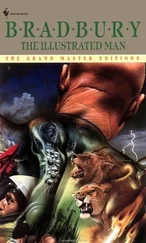Malcolm Bradbury - The History Man
Здесь есть возможность читать онлайн «Malcolm Bradbury - The History Man» весь текст электронной книги совершенно бесплатно (целиком полную версию без сокращений). В некоторых случаях можно слушать аудио, скачать через торрент в формате fb2 и присутствует краткое содержание. Жанр: Современная проза, на английском языке. Описание произведения, (предисловие) а так же отзывы посетителей доступны на портале библиотеки ЛибКат.
- Название:The History Man
- Автор:
- Жанр:
- Год:неизвестен
- ISBN:нет данных
- Рейтинг книги:3 / 5. Голосов: 1
-
Избранное:Добавить в избранное
- Отзывы:
-
Ваша оценка:
- 60
- 1
- 2
- 3
- 4
- 5
The History Man: краткое содержание, описание и аннотация
Предлагаем к чтению аннотацию, описание, краткое содержание или предисловие (зависит от того, что написал сам автор книги «The History Man»). Если вы не нашли необходимую информацию о книге — напишите в комментариях, мы постараемся отыскать её.
The History Man — читать онлайн бесплатно полную книгу (весь текст) целиком
Ниже представлен текст книги, разбитый по страницам. Система сохранения места последней прочитанной страницы, позволяет с удобством читать онлайн бесплатно книгу «The History Man», без необходимости каждый раз заново искать на чём Вы остановились. Поставьте закладку, и сможете в любой момент перейти на страницу, на которой закончили чтение.
Интервал:
Закладка:
'We can talk again tomorrow,' says Howard. 'Are you really going• out tonight?' asks Felicity. 'Yes,' says Howard, 'I am.'
'Who are you seeing?'
'I have a professional meeting,' says Howard. 'Do you have a sitter?' asks Felicity, 'can I come?' Howard stops and looks at Felicity; her face is innocence.
A pair of buttocks suddenly emerge from a door to the right of the corridor, and collide with Howard; they belong to a colleague of his, a young man of radical persuasion called Roger Fundy, who is dragging a slide-projector forth from a classroom. He stands upright; he stares briefly at Felicity's wet face, but students at Watermouth, with its rigorous teaching, cry so often that his attention is not detained. 'Howard,' he says, 'have you heard all this talk about Mangel?'
'What's that?' asks Howard. 'He's supposed to be coming to speak,' says Fundy. 'You ought to stop it,' says Howard. 'I'm a good babysitter,' says Felicity, as they walk on, 'I like kids.'
'But if you came, you'd pry,' says Howard, 'it wouldn't work, would it?' They come towards the end of the corridor; in front of them, around the lift shaft, a crowd of students mills, leaving classes that have just ended, going to classes that are about to begin. 'If I didn't?' says Felicity. 'If I reformed?'
'But can you?' asks Howard. They stop on the fringe of the crowd, waiting for the lift to come. 'I cheated,' says Felicity, 'I know you didn't take me seriously last night. I know you were just being kind.' The bell pings; the lift doors open; they move in with the crowd. 'The trouble is it's hard to know you're little,' says Felicity, 'people like to make themselves matter.' The lift descends one floor, and then they get out again. They are standing in another service area identical to the one they have just left; a similar pattern of corridors leads off it. 'I can face reality,' says Felicity, 'it's just that I remember how you told us reality doesn't exist yet, it's up to us to make it.' They move into the corridor to the right; Felicity pads at Howard's side down the long bright passage. 'I'm afraid what happened in my study was just a fragment of what was happening in my house last night,' says Howard, 'you weren't the only one to get hurt.'
'Someone got hurt?' asked Felicity. 'Only really hurt,' says Howard. The vacant doors line the corridor walls; they move towards their classroom at the end. 'Wow,' says Felicity, 'what happened?'
'I wasn't there,' says Howard, 'it was while we were downstairs. You remember the blue light? That was the ambulance.'
'Oh, Christ,' says Felicity, 'you mean it was a real accident?'
VIII
The seminar room where Howard meets this weekly class, Socsci 4.17, is an interior room without windows, lit by artificial light. The room is a small one; on three of its walls are pinned large charts, illustrating global poverty, while the fourth wall is occupied by a large green chalkboard, on which someone has written, as people are always writing, 'Workers unite'. The room contains a number of tables with gunmetal legs and bright yellow tops; these have been pushed together in the centre to form one large table, where some previous tutor has been holding a formal class. In the room stand three students, positioned somewhere indeterminate between the tables and the walls; it does not do, at Watermouth, to take it for granted that a room arrangement that suits one teacher will ever suit another. Classes at Watermouth are not simply occasions for the one-directional transmission of knowledge; no, they are events, moments of communal interaction, or, like Howard's party, happenings. There are students from Watermouth who, visiting some other university, where traditional teaching prevails, stare in amazement, as if confronted by some remarkable and exciting innovation; their classes are not like that. For Watermouth does not only educate its students; it teaches its teachers. Teams of educational specialists, psychologists, experts in group dynamics, haunt the place; they film seminars, and discuss them, and, unimpressed by anything as thin as a manifestation of pure intellectual distinction, demonstrate how student C has got through the class without speaking, or student F is expressing boredom by picking his nose, or student H has never, during an hour-long class, had eye-contact with the teacher once. They have sample classes, where the faculty teach each other, sessions in which permanent enmities are founded, and clothes get torn, and elderly professors of international reputation burst into tears. So Howard comes into the room, and he looks around it, and he inspects the arrangement of the tables. 'I'm afraid this is what Goffman would call a bad eye-to-eye ecological huddle,' he says. 'We don't want these tables here like this, do we?'
'No, Dr Kirk,' says one of the students standing in the room, a big-boned girl named Merion Scoule, in a nervous way. Watermouth makes students nervous; you never know quite what to expect. There are classes where you have, on arrival, to eat something, or touch each other, or recount last night's dreams, or undress, in order to induce that strange secular community that is, in Watermouth terms, the essence of a good class, a class that is interesting. There are others where you have to sit and listen to tutors in self-therapy, talking about their problems or their wives or their need to relate; there are other classes where almost the reverse happens, and the students become objects of therapy, problem-bearers, and where an apparently casual remark about one's schoolboy stamp collection, or a literary reference to the metaphoric significance of colour, will lead to a sudden psychic foray from a teacher who will dive down into your unconscious with three shrewd enquiries and come up clutching something in you called 'bourgeois materialism' or 'racism'. Howard's classes are especially famous for being punitive in this way. Altogether, caution and courage are necessary, and a protean nature; there are so many roles for a student to perform. There are classes where the teacher, not wanting to direct the movement of mind unduly, will remain silent throughout the class, awaiting spontaneous explosions of intelligence from his students; there are classes, indeed, where the silence never gets broken. There are other classes where the teacher never appears in person at all, but materializes suddenly into existence on a screen in the corner of the room, beamed there from the audio-visual centre, mouthing sound that can be turned up, or down, or off, according to the dedication and whim of the class, while he is off lecturing for the British Council in Brazil. Anything can happen, except the normal, save that the very idea of innovation becomes customary; to experienced Watermouth students, like these, it is conventional for Howard to come into the room, as now, and make the students form pairs-Merion Scoule and Michael Bennard; Felicity Phee and Hashmi Sadeok, from Morocco, who, older than the others, is better at carrying tables-and hump the furniture out into the corridors.
When they have moved the tables, Howard has the students arrange their chairs in a neat little circle, near to but not at the precise centre of the room. 'Right,' he says, dragging his own chair into the circle, 'that should improve interaction. We can't see you properly, Hashmi. Move your chair forward about two feet.' Hashmi stares. 'A metre and a half,' says Michael Bennard. Hashmi smiles; the group, shapely now, relaxes. Felicity and Merion sit side by side, an anguished Watermouth pair, Felicity in her shirt and long skirt, Merion in incredible thicknesses of garment, including a skin waistcoat and a crocheted long cardigan. Michael Bennard is next to Felicity; he has a large black beard, and wears a frock coat and jeans. Hashmi is next to Merion; he has a fine splayed-out hairdo, and platform shoes. 'There's something wrong,' says Howard. 'Well, we're not all here,' says Merion. 'No,' says Howard, 'who's missing?'
Читать дальшеИнтервал:
Закладка:
Похожие книги на «The History Man»
Представляем Вашему вниманию похожие книги на «The History Man» списком для выбора. Мы отобрали схожую по названию и смыслу литературу в надежде предоставить читателям больше вариантов отыскать новые, интересные, ещё непрочитанные произведения.
Обсуждение, отзывы о книге «The History Man» и просто собственные мнения читателей. Оставьте ваши комментарии, напишите, что Вы думаете о произведении, его смысле или главных героях. Укажите что конкретно понравилось, а что нет, и почему Вы так считаете.











